5 Sickly S&P 500 Stocks to Sell or Avoid
Wall Street's professional analysts say these five S&P 500 stocks are some of the worst bets in the market right now.
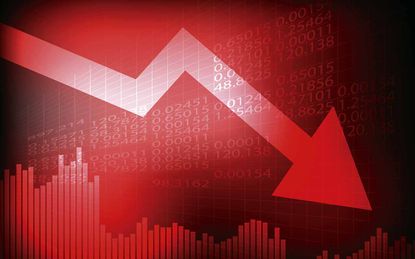

The stock market has been remarkably resilient this year amid the pandemic and recession. But the Dow's massive 1,800-point plunge on June 11 should serve as a reminder that equities remain risky.
And some are much riskier than others.
Every investor wants to buy "when there's blood in the streets." The hard part is making sure it's not your blood.
To be sure, there is no shortage of stocks for which a bear case can be made. Some of these stocks could very well be beaten-down bargains. Others, not so much.
To get a sense of where the traps might lie, we searched the S&P 500 for stocks with the lowest average analyst recommendations. Furthermore, because analysts are so reluctant to issue Sell recommendations, we homed in on stocks with a comparatively high number of these bearish calls.
Lastly, we dug into research and fundamentals. After applying our criteria, we found stocks to sell among retailers, consumer staples, energy, financials and even the odd utility. But five names looked particularly risky.
Have a look at these five troubled stocks, which have some of the lowest average analyst ratings in the S&P 500. If you're looking for stocks to sell or avoid, these would be worthy candidates.
Disclaimer
Stock prices, ratings and other data are courtesy of S&P Capital IQ as of June 11, unless otherwise noted. Dividend yields are calculated by annualizing the most recent quarterly payout and dividing by the share price.

To continue reading this article
please register for free
This is different from signing in to your print subscription
Why am I seeing this? Find out more here

Western Union
- Market value: $9.2 billion
- Dividend yield: 4.0%
- Analysts' opinion: 1 Strong Buy, 0 Buy, 14 Hold, 3 Sell, 4 Strong Sell
Western Union (WU, $22.50) is clawing its way back after the pandemic gutted remittances volume earlier this year, but the money transfer firm's problems go beyond COVID-19.
The recession is troubling enough. But more worrisome is fierce competition in the financial technology industry. Speculation has it that Western Union will make a play for MoneyGram (MGI), but bears say that tie-up wouldn't be sufficient to fight off rivals such as TransferWise, Remitly and Xoom, which is backed by PayPal (PYPL).
Diamond Hill Capital, for one, doubts a merger would move the strategic needle for WU.
"We remain skeptical of the company's ability to deliver sustained, long-term revenue growth given competitive pressures we see in the core money transfer business, namely threats from various digital solutions and new entrants," says Diamond Hill, an investment manager with more than $20 billion in assets under management.
A single analyst rates WU at Strong Buy, while 14 have it at Hold. Most noticeable is that seven analysts have Western Union among their stocks to sell, given how rarely Wall Street issues Sell calls.

American Airlines
- Market value: $6.1 billion
- Dividend yield: N/A
- Analysts' opinion: 3 Strong Buy, 0 Buy, 7 Hold, 5 Sell, 4 Strong Sell
Investors who are being greedy when others are fearful of airline stocks are making a bold but risky bet. Analysts are particularly concerned about American Airlines (AAL, $14.38), which is burning through $40 million in cash a day – less than the $100 million per day it logged in April, but still worrisome – and looks to have an unsustainable valuation.
American Airlines said in early June that it's planning to fly 55% of its domestic schedule and about 20% of its international schedule in July. That would represent only 40% of its year-over-year system-wide capacity.
AAL stock rallied more than 40% on the news – a price reaction that Credit Suisse described as "confounding."
"We don't believe anyone's view on AAL stock fundamentally changed as a result of any news," says Credit Suisse, which rates the stock at Underperform (Sell). "Let us not lose sight of AAL's ~40B debt load ... that the company will need to dig out of, and our expectation that (earnings per share) will remain negative next year, weighed down by the heavy interest burden."
Just look at expectations for the broader industry. The International Air Transport Association projects airline industry losses of $84.3 billion this year. The trade group expects revenue to drop 50%. IATA predicts another $15.8 billion in losses for the wider industry next year.
Three analysts recommend swinging for the fences, rating AAL at Strong Buy. However, seven say Hold, five call it a Sell and four caution the stock is a Strong Sell.

Waters Corp.
- Market value: $11.2 billion
- Dividend yield: N/A
- Analysts' opinion: 0 Strong Buy, 0 Buy, 10 Hold, 3 Sell, 4 Strong Sell
Companies in the life sciences, bioproduction and diagnostics industry are struggling as the pandemic impacts everything from clinical trials to routine visits to the doctor. A recession only compounds their troubles.
That's why shares in Waters Corp. (WAT, $181.55), which derives almost half its sales from diagnostic instruments, are off more than 20% year-to-date, yet not a single analyst says they're a bargain at current levels.
That's partly attributable to the fact that management says the worst is still to come.
"Through four weeks of the second quarter, we have seen signs of recovery in China and other parts of Asia and Europe," said CEO Chris O'Connell on a June 12 conference call with analysts. "Though we expect the conditions seen at the end of the first quarter in the U.S., India and some parts of Europe will persist into the second quarter, making the second quarter likely more challenging than the first quarter."
Janney Montgomery Scott, which rates Waters' stock at Neutral, notes that the closure of many academic labs and biopharmaceutical labs continue to be a drag. "WAT is no longer (giving guidance) but a sales decline of at least -21% seems likely in the second quarter," Janney says.
Waters is firmly in the pros' doghouse of stocks to sell. Ten analysts rate it at Hold, three say Sell and four call it a Strong Sell. No one calls it a Buy presently.

Occidental Petroleum
- Market value: $16.0 billion
- Dividend yield: 0.2%
- Analysts' opinion: 2 Strong Buy, 0 Buy, 17 Hold, 2 Sell, 5 Strong Sell
Occidental Petroleum (OXY, $17.40) is one of the more troubled companies in the oil patch, reeling under a heavy debt load and a feeble market for oil and gas.
Although all exploration and production companies are struggling, OXY stands out for some particularly poor timing. It bought rival shale driller Anadarko Petroleum last year, bringing its debt load to $40 billion. The heavy debt and spiraling oil prices forced OXY to cut its dividend twice and prompted Moody's to downgrade its bonds to junk.
OXY stock soared in early June amid optimism over oil prices -- West Texas Intermediate crude is up about 50% over the past month -- but its precarious financial position makes it too risky for the potential reward, most analysts say.
True, bulls can take heart in Berkshire Hathaway (BRK.B) CEO Warren Buffett. He invested $10 billion in OXY in April 2019 in exchange for 100,000 preferred shares yielding 8%. Berkshire Hathaway also holds 18.9 million shares of Occidental's common stock.
But bears say the stock is far too expensive relative to its peers. Credit Suisse, which rates the stock at Underperform, points to Occidental's "over-levered balance sheet" and a debt "maturity wall that continues to loom."
"OXY faces a rather daunting approximately $12 billion in maturities over 2021 to 2023," CS analysts write.
Two Wall Street pros rate the stock at Strong Buy. Meanwhile, 17 call it a Hold, and seven have OXY among their stocks to sell right now.

Vornado Realty Trust
- Market value: $7.4 billion
- Dividend yield: 6.8%
- Analysts' opinion: 0 Strong Buy, 2 Buy, 9 Hold, 2 Sell, 2 Strong Sell
It's hard to find analysts who are bullish on commercial real estate these days, as lockdowns and a recession make it hard to collect rent and, by extension, service debt.
The Street is particularly dour when it comes to Vornado Realty Trust (VNO, $38.86). An office real estate investment trust (REIT) with properties primarily in New York City, as well as Chicago and San Francisco, Vornado has seen its stock plunge more than 40% so far this year. Indeed, VNO has declined more than 11% over the past five days alone vs. a drop of about 6% for the S&P 500.
Stifel, which rates VNO at Sell, says Vornado should cut its dividend, as it has problems that will extend beyond COVID-19. Analysts point to the discovery of "numerous work-from-home positives"; the lack of need for full time, dedicated individual office space; and the fact that co-working has been "dealt a severe body blow."
"Much as we would like to be bullish on this property sector, REIT history has shown that the macro perspective outweighs actual fundamentals and earnings," Stifel writes. "Investors will likely wait until actual market fundamentals and Office REIT earnings prove the pundits wrong."
Two analysts rate VNO at Buy. Meanwhile, nine say Hold, two call it a Sell and two have it at Strong Sell, putting it firmly in the camp of the pros' stocks to sell.

Dan Burrows is Kiplinger's senior investing writer, having joined the august publication full time in 2016.
A long-time financial journalist, Dan is a veteran of SmartMoney, MarketWatch, CBS MoneyWatch, InvestorPlace and DailyFinance. He has written for The Wall Street Journal, Bloomberg, Consumer Reports, Senior Executive and Boston magazine, and his stories have appeared in the New York Daily News, the San Jose Mercury News and Investor's Business Daily, among other publications. As a senior writer at AOL's DailyFinance, Dan reported market news from the floor of the New York Stock Exchange and hosted a weekly video segment on equities.
Once upon a time – before his days as a financial reporter and assistant financial editor at legendary fashion trade paper Women's Wear Daily – Dan worked for Spy magazine, scribbled away at Time Inc. and contributed to Maxim magazine back when lad mags were a thing. He's also written for Esquire magazine's Dubious Achievements Awards.
In his current role at Kiplinger, Dan writes about equities, fixed income, currencies, commodities, funds, macroeconomics, demographics, real estate, cost of living indexes and more.
Dan holds a bachelor's degree from Oberlin College and a master's degree from Columbia University.
Disclosure: Dan does not trade stocks or other securities. Rather, he dollar-cost averages into cheap funds and index funds and holds them forever in tax-advantaged accounts.
-
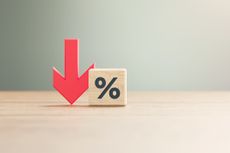 Georgia Has a New Income Tax Rate for 2024
Georgia Has a New Income Tax Rate for 2024Tax Cuts Georgians now have a tax package containing income tax cuts, childcare relief, and potential property tax caps.
By Kelley R. Taylor Published
-
 Why Spotify Stock Is Soaring After Q1 Earnings
Why Spotify Stock Is Soaring After Q1 EarningsSpotify beat expectations for the first quarter and its stock is notably higher following the report. Here's why.
By Joey Solitro Published
-
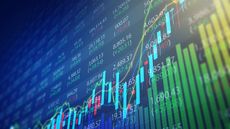 Stock Market Today: Markets Rebound Ahead of Big Week for Earnings
Stock Market Today: Markets Rebound Ahead of Big Week for EarningsEquities rallied on easing geopolitical tensions, upcoming quarterly results.
By Dan Burrows Published
-
 Stock Market Today: Nasdaq Spirals as Netflix Nosedives
Stock Market Today: Nasdaq Spirals as Netflix NosedivesA big earnings boom for credit card giant American Express helped the Dow notch another win.
By Karee Venema Published
-
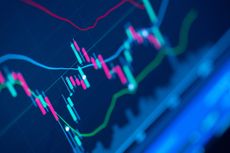 Stock Market Today: S&P 500, Nasdaq Extend Losing Streaks
Stock Market Today: S&P 500, Nasdaq Extend Losing StreaksThe two indexes have closed lower for five straight sessions.
By Karee Venema Published
-
 Stock Market Today: Dow Slips After Travelers' Earnings Miss
Stock Market Today: Dow Slips After Travelers' Earnings MissThe property and casualty insurer posted a bottom-line miss as catastrophe losses spiked.
By Karee Venema Published
-
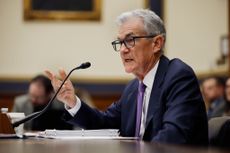 Stock Market Today: Stocks Stabilize After Powell's Rate-Cut Warning
Stock Market Today: Stocks Stabilize After Powell's Rate-Cut WarningThe main indexes temporarily tumbled after Fed Chair Powell said interest rates could stay higher for longer.
By Karee Venema Published
-
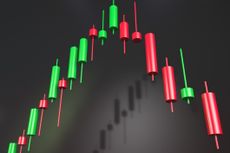 Stock Market Today: Stocks Reverse Lower as Treasury Yields Spike
Stock Market Today: Stocks Reverse Lower as Treasury Yields SpikeA good-news-is-bad-news retail sales report lowered rate-cut expectations and caused government bond yields to surge.
By Karee Venema Last updated
-
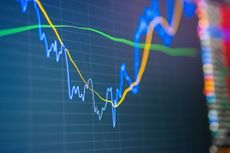 Stock Market Today: Nasdaq Leads as Magnificent 7 Stocks Rise
Stock Market Today: Nasdaq Leads as Magnificent 7 Stocks RiseStrength in several mega-cap tech and communication services stocks kept the main indexes higher Thursday.
By Karee Venema Published
-
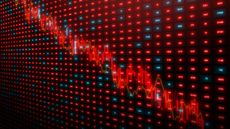 Stock Market Today: Stocks Tumble After a Hot Inflation Print
Stock Market Today: Stocks Tumble After a Hot Inflation PrintEquities retreated after inflation data called the Fed's rate-cut plans into question.
By Dan Burrows Published
